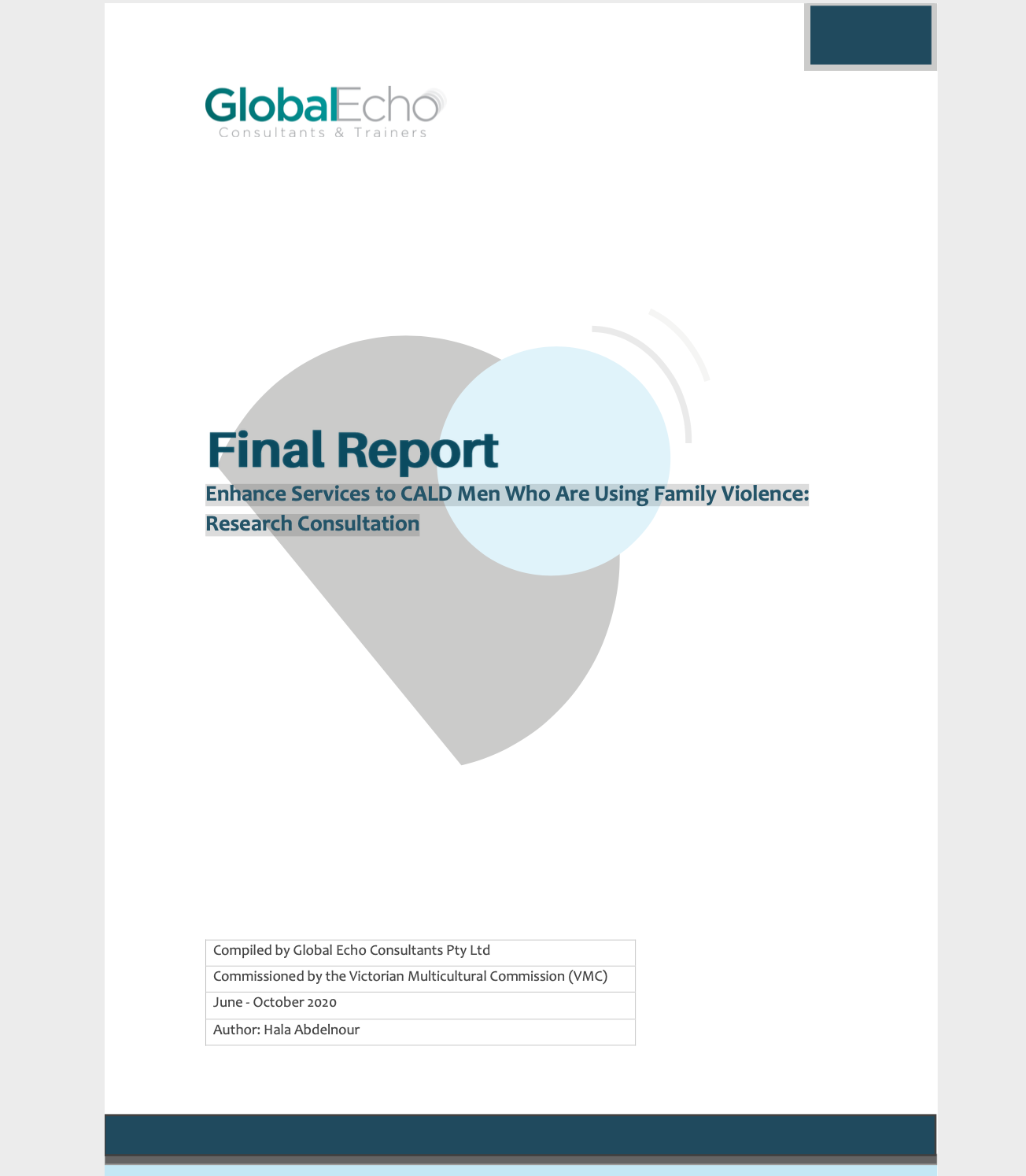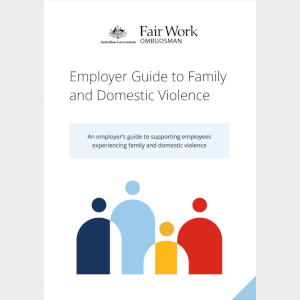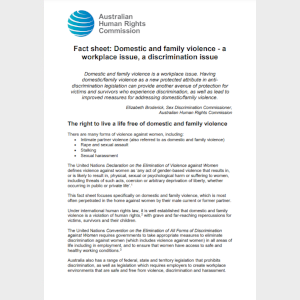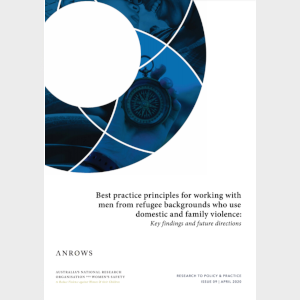Read.
Disclaimer
Read from our curated resources on understanding male perpetrator behaviour, updated frameworks on family violence and exploring intersectional practice with communities. We have collated these readings and suggested books that we believe are valuable to working with and engaging people who use family violence. This is an ever growing list of resources that we will continue to update and will include any reports that we publish ourselves over time. Head over to our Media section for more blogs and related discussions.
Steps Towards Changes
Project Mirabal is one of the earliest and most comprehensive studies on the effecitveness of Men’s Behaviour Change programs. Citation: Kelly, L. and Westmarland, N. (2015) Domestic Violence Perpetrator Programmes: Steps Towards Change. Project Mirabal Final Report. London and Durham: London Metropolitan University and Durham University. An electronic copy of this report and other Project Mirabal publications are available at: https://www.dur.ac.uk/criva/projectmirabal
Views from the Mirror: Reflections on being a female facilitator in a Men’s Behaviour Change Program. Anon
Views from the Mirror: Reflections on being a female facilitator in a Men’s Behaviour Change Program. This honest and bold reflection speaks to the experiences of many females facilitating Men’s Behaviour Change programs. Tasked with being the ‘voice of women’ in a room full of men (who use violence towards women), the role is often undervalued and under-supported. This paper is supported by a recording from another female MBCP facilitator in our Listen section as we draw attention to the complexities of working in this space.
Everybody Matters Inclusion and Equity Statement (2019)
In 2019, the Victorian Department of Premier and Cabinet produced this document about inclusion, equity and intersectionality. We feel that there are some excellent points in here to note, particularly if you’re thinking about diversifying your workforce or your work reach.
Why Does He Do That?
One of the most influential books on men who use violence. more info, reviews and purchase options here: https://g.co/kgs/eXGA6M
Engaging Men and Boys in Violence Prevention
Michael Flood is an Australian sociologist and an associate professor at the Queensland University of Technology School of Justice. Flood gained his doctorate in gender and sexuality studies from the Australian National University. He is is an internationally recognised researcher on men, masculinities, and violence prevention, and an activist and educator. His book, Engaging Men and Boys in Violence Prevention, is a fantastic read and can be download for free by clicking on the image above.
The Man Box Project
The Man Box Project explores the attitudes and beliefs of young men in Australia. The full report and relevant fact sheets can be downloaded here: https://jss.org.au/what-we-do/the-mens-project/research/
Everybody Matters Inclusion and Equity Statement (2019)
Australia’s National Research Organisation for Women’s Safety (ANROWS) produces useful fact sheets that inform the work we do. For more on these, see: https://www.anrows.org.au/resources/
Impacts of family, domestic and sexual violence
Australia’s National Research Organisation for Women’s Safety (ANROWS) produces useful fact sheets that inform the work we do. For more on these, see: https://www.anrows.org.au/resources/
Infographic: Burden of Disease
Intimate partner violence stats in Australia.Australia’s National Research Organisation for Women’s Safety (ANROWS) produces useful Info Sheets that inform the work we do. For more on these, see: https://www.anrows.org.au/resources/
Are we there yet? Australian's attitudes towards violence against women & gender equality
Australian attitudes to gender equality – we’re doing well but we have a fair bit of progress to do in this space. For more on these, see: https://www.anrows.org.au/resources/
Shame and denial: engaging mandated men
This paper by Kulkins and Wheeler looks at the role of shame and managing shame while working with mandated men who use violence. Shame has a significant impact on our capacity for change, and when managed correctly, can be a great driver for positive behaviour change. Our advanced traning programs include practice tools for professionals to apply an understanding of shame when working with families that are impacted by violence.
Men and #MeToo: Mapping Men’sResponses to Anti-violence Advocacy
While #MeToo has prompted public attention also to the harassment of men, which is largely by other men, in reviewing men’s responses to #MeToo, this paper focuses on men’s violence against women and on responses among men related to this.
Preventing violence against women and girls
Before exploring the significance of men’s violence against women for workplaces, it is relevant to know more about the causes of men’s violence towards women in general. In this paper, Flood focuses on the determinants of intimate partner violence in particular (both domestic and sexual violence perpetrated by men against women in the context of relationships and families). He also draws on other forms of men’s violence against women. We draw on these concepts in our family violence training packages for workplaces.
Work with men to end violence against women: a critical stocktake
This paper provides a critical assessment of efforts to involve men in the prevention of men’s violence against women. A critical assessment of the field’s working assumptions is vital if it is to contribute to the future prevention of men’s violence against women.
Project Report: Enhance Services to CALD Perpetrators of Family Violence 2020
Authored by Hala Abdelnour and commissioned by the Victorian Multicultural Commission (VMC) in June 2020, this pilot study is set to collate data and information about services across Victoria that are supporting culturally and linguistically diverse (CALD) perpetrators of family violence to reduce their harmful behaviours. Global Echo Consultants is the parent company to Institute of non-violence.
Fairwork Australia
Family and domestic violence is not only a private or personal issue. It affects a person’s ability to lead a productive life and affects children, families and the community. When an employee is living with family and domestic violence, they often experience heightened financial stress, homelessness, isolation, vulnerability and even a sense of shame. Without appropriate support, there can be many implications for workplaces. Knowledge, awareness and planning can help employers support their employees, meet their workplace obligations and protect their workplaces.
Australian Human Rights Commission
Domestic and family violence is a workplace issue. Having domestic/family violence as a new protected attribute in anti-discrimination legislation can provide another avenue of protection for victims and survivors who experience discrimination, as well as lead to improved measures for addressing domestic/family violence.
Elizabeth Broderick, Sex Discrimination Commissioner,
Australian Human Rights Commission
Best practice principles for working with men from refugee backgrounds who use domestic and family violence:
ANROWS Research to policy and practice papers are concise papers that summarise key findings of research on violence against women and their children, including research produced under ANROWS’s research program, and provide advice on the implications for policy and practice. This is an edited summary of key findings from the ANROWS research project “Best practice principles for interventions with domestic and family violence perpetrators from refugee backgrounds”.
(Research report, 09/2020). Sydney: ANROWS.
Improving approaches in psychotherapy and domestic violence interventions for perpetrators from marginalized ethnic groups
The major goal of this paper is to review the existing therapeutic approaches in domestic violence perpetrator interventions by illustrating their effectiveness in reducing and ending the violent behaviour of men from marginalized ethnic groups. The paper aims to discuss how services can efficiently respond to historically marginalized ethnic perpetrators’ needs and circumstances based on their social and cultural contexts.
Engaging men reducing resistance and building support
Resistance and backlash are an inevitable part of the work of reducing men’s violence against women and building gender equality. While our efforts often receive support and make change, they also often meet resistance. People push back, whether because change is threatening, they have a socialised investment in ignoring or defending the problem, or they are simply expressing sexist and violence-supportive social norms.
How can we reduce and prevent resistance and backlash, particularly in engaging men? This guide provides practical strategies for practitioners, advocates, and educators.






















